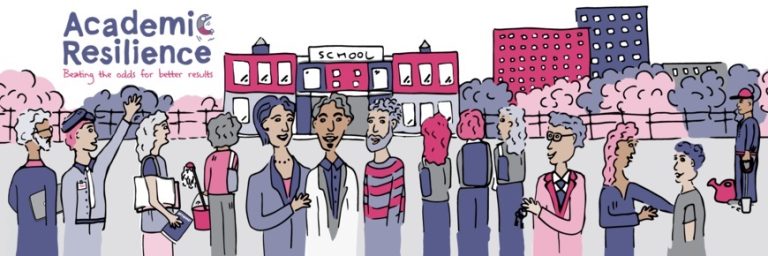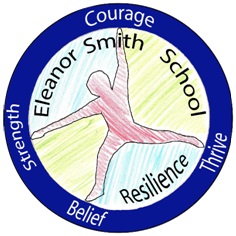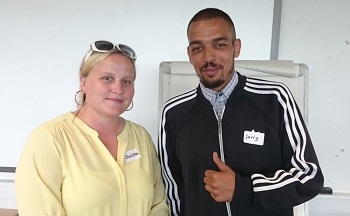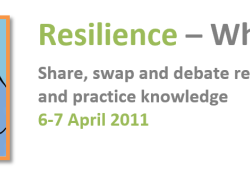Boingboing blogs from… the Resilience Forum!
A whole school approach to using the Resilience Framework with pupils with complex needs – Stephanie Coombe, Graham Smith, Jerry Jairette & Charlotte Smith, Brighton Resilience Forum – Thursday 7 July 2016
by Angie, Boingboing volunteer and blogger
Exciting forum today and it’s bursting at the seams. Steph, one of our PhD students at Brighton, is centre stage. She works in Eleanor Smith special school in Newham. She’s here with Graham, the school’s head teacher, and two other school support worker colleagues, Jerry and Charlotte. They are talking about the great work that has been going on in their school. They’ve been implementing a whole school approach to resilience, based on the Resilience Framework that I (Angie) developed with colleagues and community partners in 2007. If you don’t know what that is you can find out more on our website. We’ve written various articles and books about it too if you want to know more. The school’s work on resilience has being going since 2012. I must say I’m feeling really cheery sitting here today to hear about the journey they’ve been on. It’s recently resulted in them getting their resilience approach praised as part of a good Ofsted result – the holy grail of the teaching world.
Steph’s well into her PhD journey and is busy writing it up. She’s done some fascinating collaborative research with staff and students at the school using appreciative enquiry. Together they have changed ways in which the school runs. And I do mean together, everyone is involved, cooks, cleaners, teachers and students. I remember going there in 2012 to do an inset day workshop with them on using the Resilience Framework. All the staff were there and we made a big deal of getting everyone involved. It’s really stuck. Steph has so much energy for keeping on with this and Graham the head teacher is awesome. In fact they all are.
Alongside working with the Resilience Framework, they use the Thrive Approach. This focuses on supporting children’s individual development and has a handy assessment toolkit. I don’t want to advertise that too much coz I don’t think it’s a not-for-profit organisation running it. But correct me if I’m wrong, somebody, please. Eleanor Smith are also implementing restorative justice approaches, which for me are actually part of the Resilience Framework conceptually anyway. Must remember to talk to Steph about this.
Graham says that the school these days is run along therapeutic lines, rather than the way it was run before – using a behaviourist approach. So they used to work in what Graham described as quite a punitive way.
Steph read out a speech that had been written by of one of the students who has really had a rough time. With the support of the school, he has really turned his life around. Key turning points for that were supporting him to really develop good relationships with key adults in the school.
Implementing aspects of the Resilience Framework has produced great results. For example, they do much more now to support children to develop hobbies and interests. They have set up clubs and lots of the kids go to them. They’re now paying older young people to run the clubs for the younger children, which teaches them about the value of work and reliability straight off. Such a great initiative.
The Senior Leadership Team and support workers were really worried about one particular young person because he was beginning to get into drugs. He had obvious mental health issues and was in a real bad way. The support workers said that the young person needed to get out of the area for a while to escape his peer group. They had no budget for this, but they made it happen. Charlotte and Jerry took him to Charlotte mum’s caravan in the countryside. At this point some people in the audience started to mutter about insurance and child protection. See why so many good ideas get stifled? Thank goodness they’ve got Graham as the head, otherwise computer would have said no to that one.
Am so glad computer said yes to this one though. Let’s tell you how it turned out. Well, on the way the young person was very grumpy and said he was going to be bored going off on a trip with two adults on his own. But he really got into it. When he got to the caravan he unpacked his own bag and then managed to win something in the amusement park. He was so excited and just loved being by the sea. He’d never been before. Jerry explained how they drew on the Resilience Framework and highlighted his achievements and he felt very proud. The young man also got into teaching Jerry and Charlotte to play football better than they did already. And he taught them how to make scrambled egg. He had such a lot of talent and was great at helping others to improve their skills. Working this way round, with him teaching Jerry and Charlotte, really improved his self-esteem and Jerry said they could see that he was beginning to feel that he had talents.
Jerry carried on with the story, explaining how the young man ended up being set up with a football programme that would keep him busy every day after school and even on Saturday mornings. Keeping him safe was a motivator for this. Everyone was worried that he would lapse and end up getting into drugs or gang crime. Jerry took him to the football for a week and a half, and then he carried on going himself. Lots more work has been built on this. From hearing this story, it really reminds me of all the original aspirations we expressed in the book I wrote with colleagues in 2007 on Resilient Therapy. Some of it is totally obvious, but so hard to actually achieve. We took this theme up at the Forum, having a discussion about how people had to work differently to make positive things happen.
Steph explained how they have brought the Resilience Framework alive. They all use the language from it in their everyday practice. I could really see that – Jerry was peppering his story with elements of the Framework. It seemed to have really got inside him, and inside Charlotte.
And they use the Framework to support each other too. It’s not just for the kids. Jerry told Steph to put on her rose-tinted glasses just the other week when she was glum because one of their children’s lives took a bit of a nose dive.
What I took away from their talk is just how much energy they put into what we call ‘managing the effective detail’ of making resilient moves with and for their children. They have so much commitment to those children. Sorry to sound so gushing, but I just love them all.
Robin, a Prof who came to the Forum from over the road at Sussex Uni, asked them the question I would have asked – if I wasn’t practising keeping my gob shut. ‘How does all this work in a large secondary school?’ Sorry but I chipped in then. I wanted to tell people about the Academic Resilience Approach (ARA). This is something that I co-designed with Lisa Williams, someone who really understands schools systems. We drew in expertise from school staff and students around the country, including Eleanor Smith. Our first port of call was the Resilience Framework. We made a set of resources that any school could use. They are free to download so if you are interested please take a look. The ARA is being used in lots of different schools, so if you end up using it do let us know how you get on. We’d love to know.
Steph’s school features on the ARA website, so if you’ve been inspired by what they are doing you can find out more about it by watching the film:
And look out for Steph’s PhD thesis too. It’s going to be a cracking read. The thesis explains in great detail the difference they’ve made in their school through using the Resilience Framework as the basis for a whole school approach. Can’t wait for it to be finished.
In closing the session, Anne Rathbone, who was chairing the afternoon, said that this Resilience Forum had been one of her favourites. It was truly wonderful to hear about the dedication of Eleanor Smith and all that they’ve achieved. So grateful that they’ve come down from London for a trip to the seaside to give us such a wonderful talk. Next time we’d love it if they brought the kids. And I have just the Forum in mind for that. Watch this space.




